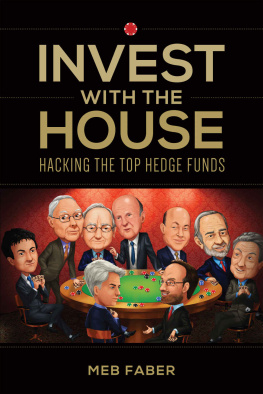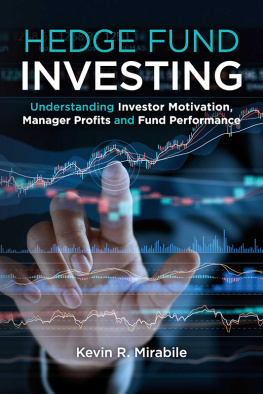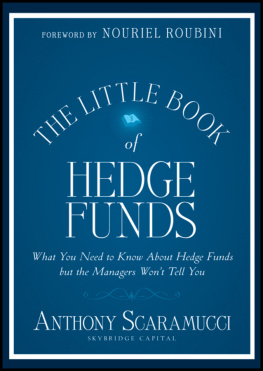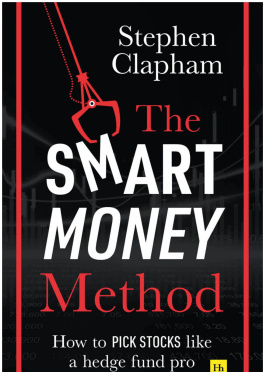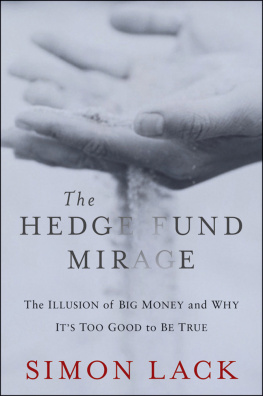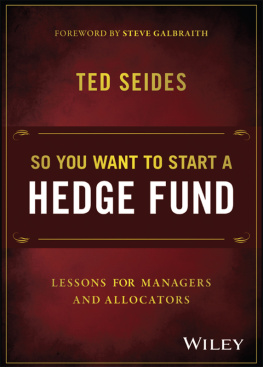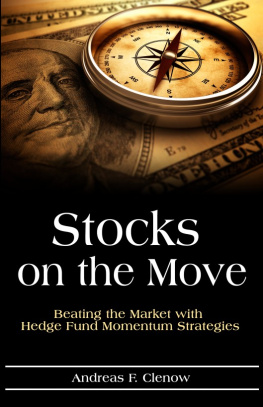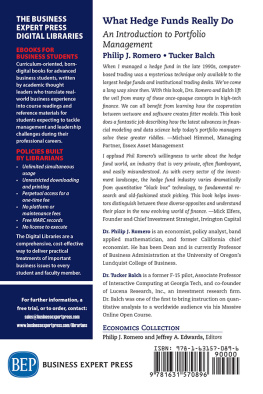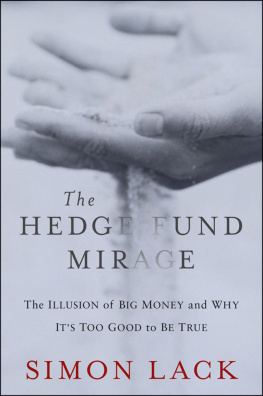M r. Faber is a co-founder and the Chief Investment Officer of Cambria Investment Management, LP. Faber is the manager of Cambrias ETFs, separate accounts, and private investment funds for accredited investors. Mr. Faber is also the author of the Meb Faber Research blog, Shareholder Yield , Global Value,Global Asset Allocation and the co-author of The Ivy Portfolio: How to Invest Like the Top Endowments and Avoid Bear Markets . He is a frequent speaker and writer on investment strategies and has been featured in Barrons, The New York Times, and The New Yorker. Mr. Faber graduated from the University of Virginia with degrees in Engineering Science and Biology. He is a Chartered Alternative Investment Analyst (CAIA), and Chartered Market Technician (CMT).
M any years ago , an investor had to track and backtest US Securities and Exchange Commission (SEC) filings by hand, a truly arduous task. I helped cofound a company with Mazin Jadallah in 2008 called AlphaClone to help automate the process. Thanks to Maz and the team at AlphaClone for providing the backtest and holdings data that I use throughout the book. While it has been years since I have been involved with the company, in full disclosure, I still retain a small passive equity stake.
I would like to thank Irwin Speizer for his thoughtful assistance with editing and writing this book. Also thanks to the many research boutiques and investment companies for providing their own insights and feedback included in the text.
Many friends and family helped in editing my terrible grammar and spelling. Also thanks to Professor Griffin for the original inspiration for this book over 15 years ago.
I believe in the discipline of mastering the best that other people have ever figured out. I dont believe in just sitting there and trying to dream it up all yourself. Nobodys that smart.
Charlie Munger
S tock picking is hard really, really, hard. The odds are stacked against you. My friends at Longboard Asset Management completed a study called The Capitalism Distribution that examined stock returns from the top 3,000 stocks from 19832007. They found that:
- 64 percent of stocks underperformed the broad stock market index,
- 39 percent of stocks were unprofitable investments,
- 19 percent of stocks lost at least 75 percent of their value, and
- 25 percent of stocks were responsible for all the markets gains.
Simply picking a stock out of a hat means you have a 64 percent chance of underperforming a basic index fund and a 39 percent chance of losing money!
Not only is it hard to pick stocks, but you are also up against the most talented investors in the worldpeople like Ray Dalio, founder of Bridgewater Associates, the worlds largest hedge fund. Dalio is fond of comparing stock market investing to a poker game, and his description brings to mind the old saying that if you sit down at the poker table and you dont know who the sucker is, then youre the sucker. Dalio has spent oodles of time and money to make sure hes not the sucker. Heres how Dalio once described his investment methods using the poker analogy:
The bets are zero sum. In order for you to beat me in the game, its like poker; its a zero-sum game. We have 1,500 people that work at Bridgewater, we spend hundreds of millions of dollars on research, and so on. Weve been doing this for 37 years, and we dont know that were going to win. We have to have diversified bets. So its very important for most people to know when not to make a bet. Because if youre going to come to the poker table, youre going to have to beat me, and youre going to have to beat those who take money. So the nature of investing is that a very small percentage of the people take money, essentially, in that poker game away from other people who dont know when prices go up, whether that means its a good investment or if its a more expensive investment.
With his superior stable of research and investment talent, Dalio figures he can beat most of the other players at the table. And he does. His Bridgewater fund posts investment returns that make others jealous. He does it year after year. Heres whats really interesting: he is not the only one. A special few have done it as well, beating the market year after year. They dont all do it the same way or with the same investments; some have done it better than others, and some eventually falter. But the fact is, it happens, and it does so with some consistency.
We make two assumptions that are vital to the arguments in this book:
- There are active managers that can beat the market (i.e., the market is not completely efficient).
- Superior active managers can be identified.
These two concepts are difficult for many investors to swallow. There is a general feeling that the market cant be beat, and it is tough to get past that belief. A big challenge is separating luck from skill. But would anyone deny that some people are better than others at stock picking? Just like any other profession, the investment field has top experts who are paid handsomely for what they do.
Warren Buffett of Berkshire Hathaway certainly comes to mind. Buffett is one of the most famous stock pickers of all time, and with an estimated net worth of more than $70 billion, he is also one of the richest people in the world. The 2014 Berkshire Hathaway annual report indicates that the per-share market value of the company has increased at a compounded annual rate of 21.6 percent since 1965. Compared to an average of 9.9 percent for the S&P 500, including dividends, the outperformance is striking.
In June 2014, Andy Chua, a businessman from Singapore, paid over $2 million in a charity auction to have lunch with Buffett, but its possible to learn some of Buffetts wisdom for a lot less. In fact, its possible to learn what stocks he is buying and selling for free.

